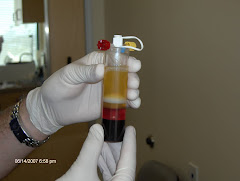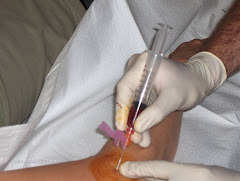
I recently co-authored a chapter on Piriformis Syndrome in a new text by Grant Cooper, titled Therapeutic Uses of Botulinum Neurotoxin, http://www.amazon.com/Therapeutic-Botulinum-Toxin-Grant-Cooper/dp/1588299147/ref=sr_1_9/002-0107581-8821662?ie=UTF8&s=books&qid=1187909430&sr=1-9
Piriformis Syndrome refers to an irritation of the sciatic nerve in the buttock, which differs from a herniated disc in the spine.
After injecting many a forehead with botox, Plastic Surgeons learned that patient's headaches were alleviated. Through research, we have learned that botox works by temporarily weakening overworked muscles. Also, we now understand that Botox inhibits pain (nociceptive) fibers as well.
Botox is a purified form of Botulinum Neurotoxin type A that allows physicians to inject a small quantity into a specific area with a local response. In my residency training in New York City; we safely treated hundreds of adults with Stroke & children with Cerebal Palsy suffering from spasticity. "Spasticity" refers to muscle tightness (an increased reflex) after a brain injury. People with spasticity may have an elbow uncontrollably bent, thumb clenched inside a palm, or pointed feet with difficulty walking. We have seen dramatic functional benefits with return of independence; however the effects last approximately 3 months and need to be repeated periodically.
There is optimism that Botox may help alleviate knee osteoarthritic pain. A recent pilot study from Minnesota, showed decreased pain in patients with continued pain following knee replacements. http://clinicaltrials.gov/ct/show/NCT00403273?order=4
http://www.medpagetoday.com/Rheumatology/2005ACRMeeting/tb/4502
However, further research is certainly needed.







No comments:
Post a Comment